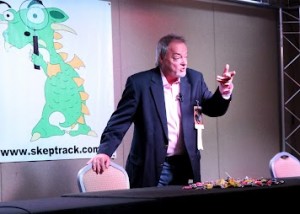Call Me Crazy, But…
Elyse over at Skepchick has written an interesting commentary on the use of potentially hurtful language, such as colloquial use of the term “crazy.” Her conclusion:
That maybe, if someone tells me that a term hurts them, I don’t get to decide whether or not I’m actually hurting them. I know they’re hurt. My only decision is whether or not I want to keep hurting them or not. Usually, the answer is no.
The comments range the spectrum of opinion from full agreement to complete disagreement. I do agree with Elyse that this is a fascinating discussion, partly, in my opinion, because there is no objective answer. I would like to offer my opinion and explore some angles of this issue that were not addressed by Elyse or the commenters.
Taking an ethical view, there appear to be several legitimate ethical principles at stake with the question of using potentially offensive language. One principle is that of nonmaleficience - the directive not to inflict evil or cause harm to others; in this case the harm is psychological due to offensive language. Another principle is that of personal liberty, in this case freedom of expression. These two principles appear to be at odds with respect to the question of offensive language.





